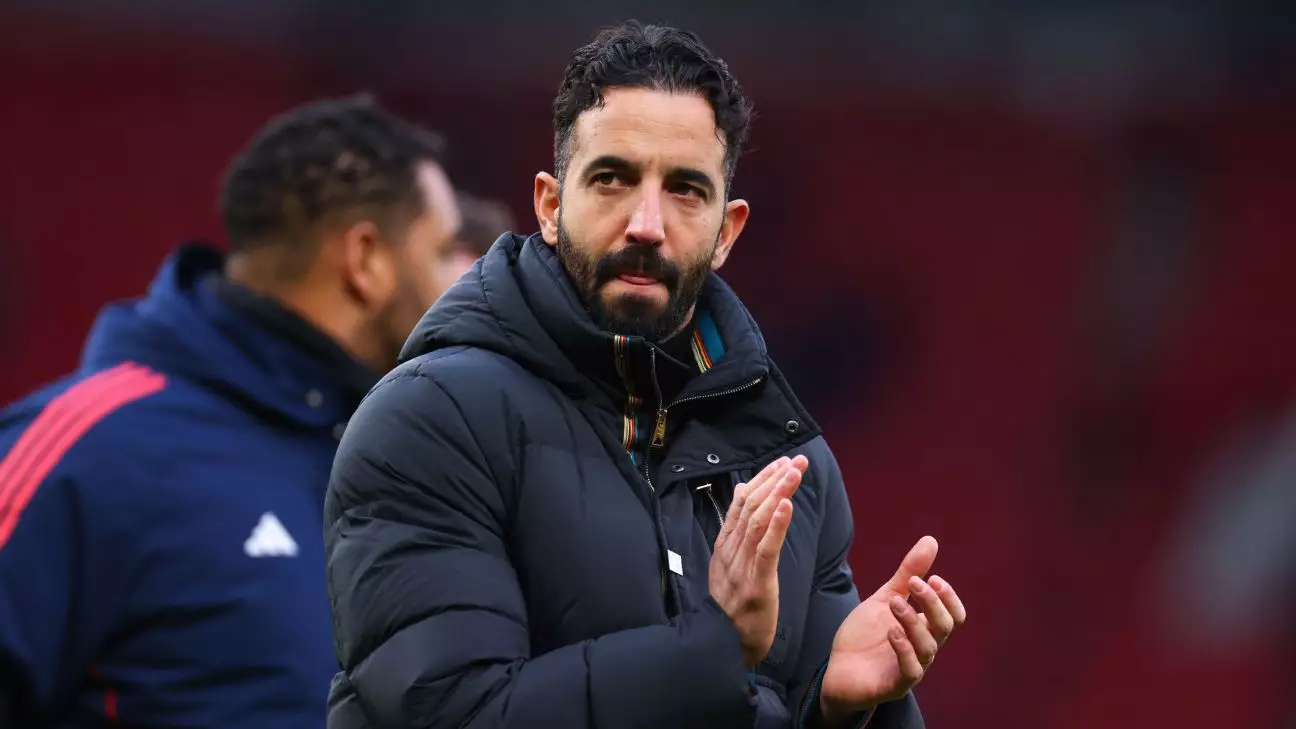In recent months, Manchester United has found itself at a crossroads, grappling with severe job cuts and a concerning financial outlook. The club made headlines when it announced a reduction of 250 employees this summer, a drastic move that has reverberated throughout its fanbase and beyond. This decision stems from a strategic review aimed at curtailing financial losses, which have reportedly totaled around £300 million over the past three years. Moreover, the performance of the team has not aligned with the historical prestige of the club, further compounding the challenges ahead.
Amid this turmoil, Rubén Amorim, the newly appointed head coach, has been vocal about the need for accountability. He has placed the onus squarely on the shoulders of his team and coaching staff, stating that their performance directly impacts not just themselves but also the broader Manchester United community, including employees and loyal supporters.
Amorim’s remarks reflect a grim reality; when a football club fails to secure a spot in prestigious competitions like the UEFA Champions League, its revenue streams dry up. This has become evident for Manchester United, who, despite historical successes, now find themselves languishing in the mid-table positions of the Premier League – currently hovering at the 14th place. The plight of the current squad stands in stark contrast to the club’s storied legacy, where any dip in performance would typically result in swift changes both on and off the pitch.
The absence of Champions League football has not only restricted their finances but has also impacted the morale within the club. Amorim has acknowledged that the emotional toll of job insecurity weighs heavily on the affected employees, reinforcing the message that the team bears a collective responsibility to improve their fortunes. He astutely notes that “the biggest problem is the football team,” suggesting that the on-field performance is the root cause of the cyclical crises faced by the club.
The repercussions of the club’s financial distress extend beyond the closing of offices and job losses; the loyal fanbase finds its pocketbook affected as well. In an effort to stabilize income, club management has resorted to increasing ticket prices, a move that could alienate fans who already feel the strain of their loyalty to a faltering team. Amorim has aptly recognized the link between the team’s performance and ticket pricing, emphasizing that immediate victories, such as winning against competitors like Tottenham Hotspur, could mitigate the need for price hikes.
The importance of fan engagement cannot be understated in this narrative. When clubs like Manchester United face adversity, it is the community of fans that must endure not only the angst of poor performances but also increasing costs associated with their support. Amorim’s call for the team to take corrective action is as much a plea to the players as it is to the wider community, comprising staff and supporters who are all intertwined in the club’s operational success.
Amorim’s urgent message highlights a critical juncture for Manchester United. He emphasizes the need for immediate action and accountability through improved performance, as he believes that success on the field is the key to alleviating the club’s current financial pressures. By advocating for victory—a tangible and immediate goal—he seeks to inspire both players and supporters alike, re-establishing a culture of ambition and success within the club.
In his candid reflections, Amorim has also illustrated the broader implications of the financial restructuring implemented by club owner Sir Jim Ratcliffe. The stark realities of compliance with Performance Squad Regulations (PSR) and Financial Fair Play (FFP) echo throughout the corridors of Old Trafford, as the team faces the consequences of past decisions made during more prosperous times.
As Manchester United navigates these turbulent waters, it is clear that the club’s leadership, now embodied by Amorim, stands firmly at the helm. The intertwining destinies of the players, staff, and fans hinge upon decisive action and a collective commitment to restoring the club’s former glory. In this era of intense scrutiny, success on the pitch is more than just a matter of points; it has become pivotal to the very existence of the Manchester United legacy.

